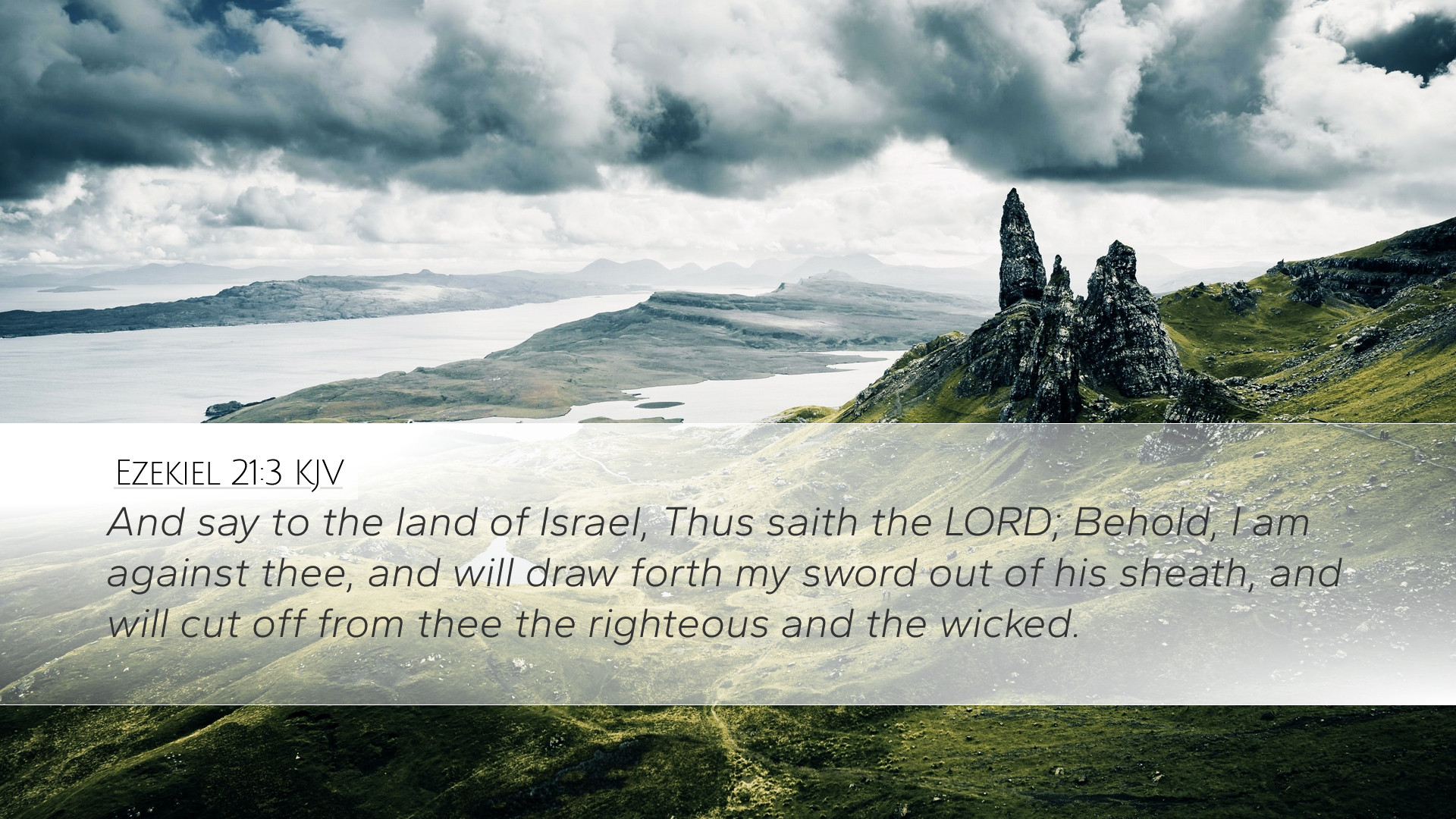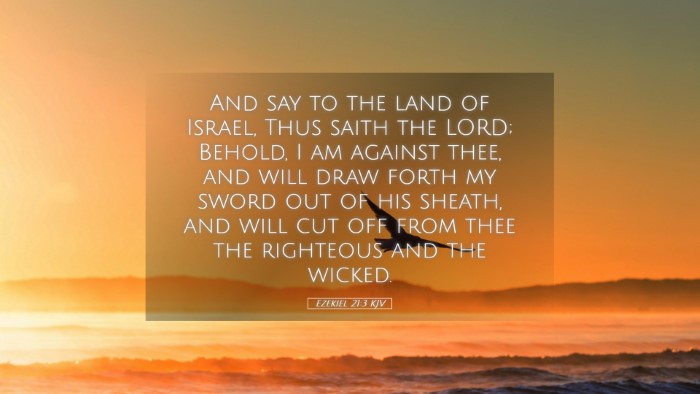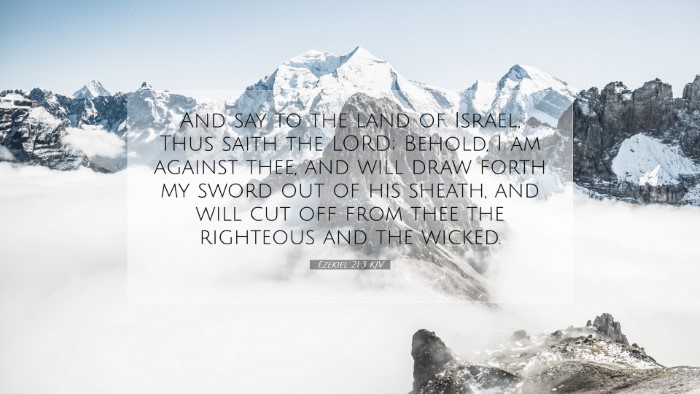Ezekiel 21:3 - Commentary and Insights
Verse: "And say to the land of Israel, Thus says the Lord: Behold, I am against you, and will draw My sword out of its sheath and cut off both the righteous and the wicked from you."
Introduction
The prophecy contained in Ezekiel 21:3 is a stark warning, embodying God's impending judgment upon the land of Israel. This verse encapsulates the serious and grave nature of divine judgment that is to come. In this commentary, insights from public domain commentaries—namely Matthew Henry, Albert Barnes, and Adam Clarke—will be explored to provide a deeper understanding of this profound text.
Historical Context
- Setting of Ezekiel: The book of Ezekiel was written during the Babylonian exile of the Israelites, where Jeremiah's lamentations for the fallen state of Jerusalem intertwined with Ezekiel's proclamations of impending judgment. Historical tensions were heightened due to Israel's transgressions and persistent idolatry.
- Judgment Proclaimed: Ezekiel often stands as a herald of both doom and hope. His role reinforces God’s sovereignty and righteousness, as he calls for repentance while declaring the unavoidable consequences of sin.
Analysis of the Verse
Divine Sovereignty: The phrase "Thus says the Lord" underscores the authoritative declaration of God. This establishes not only the legitimacy but the necessity of the warning given through Ezekiel.
God's Stance Against Israel: The proclamation, "I am against you," signals a severe divine disfavor. As Matthew Henry notes, God's anger is directed towards His people who have turned away. Such language indicates that the walls of protection over Israel have eroded due to their infidelity.
The Sword from Its Sheath: The imagery of the sword drawn illustrates the inevitability and swiftness of God’s judgment. Adam Clarke emphasizes that the sword symbolizes both chastisement and the final consequences of disobedience. When God draws His sword, it foreshadows a time when His hand will no longer withhold judgment from those who deserve it.
Righteous and Wicked
The statement about cutting off the righteous and the wicked raises significant theological insights:
- Inclusivity of Judgment: Both righteous and wicked shall face the divine sword. Albert Barnes comments on the corporate nature of Israel's sin, which leads to communal judgment despite individual righteousness. This communal aspect serves as a powerful reminder of the seriousness of sin and its broader implications.
- Nature of Righteousness: The fate of the righteous may seem harsh but speaks to God's ultimate justice. The righteous may not escape suffering, but their faithfulness will be recognized in God’s redemptive plans. Matthew Henry asserts that the judgment serves as a purifying agent, leading to restoration post-judgment.
- Warning for Today: The dual judgment of the righteous and the wicked cautions modern believers against complacency. The path of righteousness is fraught with spiritual peril in a corrupt society. Maintaining fidelity to God’s covenant remains paramount.
Theological Implications
This verse presents profound theological reflections on the nature of God's justice, mercy, and the consequence of turning away from Him:
- Justice of God: God's willingness to cut off the righteous reflects His commitment to justice over favoritism. Clarke highlights that divine justice does not operate through human sympathy; it is rooted in holiness and righteousness.
- Call to Repentance: The prophetic message is not only a foretelling but also a call to repentance. There remains an opportunity for turning back to God even amidst impending judgment. This aspect is vital, particularly for pastoral theology, emphasizing God’s desire for restoration rather than destruction.
- Hope Beyond Judgment: The narrative doesn’t conclude with judgment but opens the door to the hope of restoration. Ezekiel's prophecies are ultimately directed towards future restoration and glory, implying that the sword's draw is a precursor to the healing and rebuilding that God will bring forth.
Conclusion
Ezekiel 21:3 serves as a critical reminder of God’s unwavering commitment to holiness and justice. The insights from commentaries highlight the dire consequences of collective sin and the omnipresence of God’s judgment. For pastors, scholars, and theologians, this passage is a metonym for God’s character and His covenantal relationship with humanity. Understanding this verse in its full context not only enriches spiritual discourse but also provokes a profound reflection on personal and communal fidelity to God.


